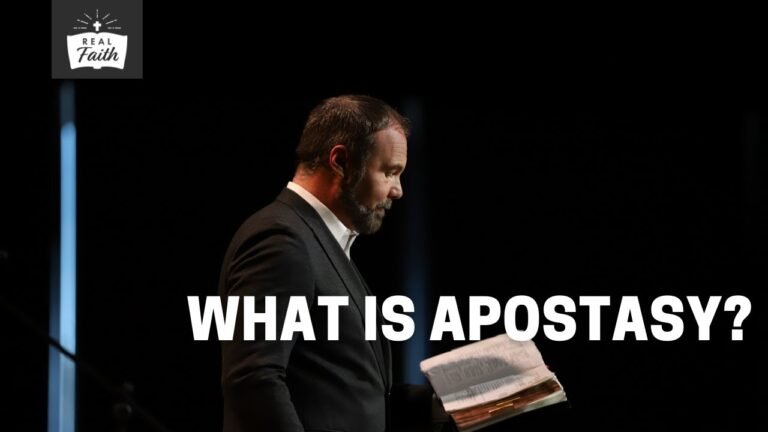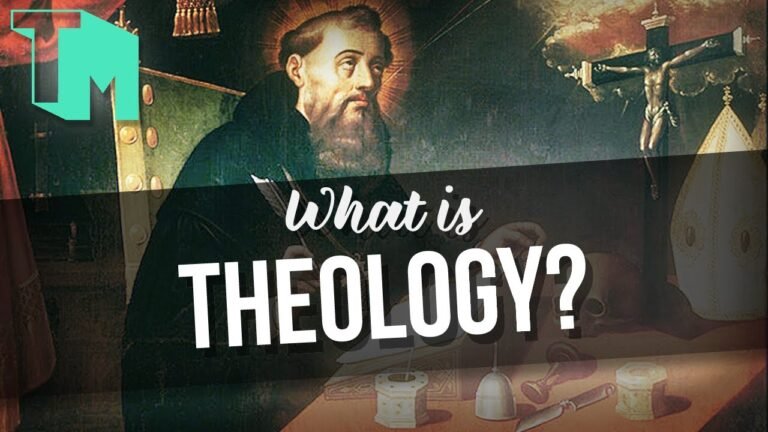Understanding Apostasy: Definition and Implications
Apostasy, often defined as the formal abandonment or renunciation of a religious belief, has intrigued scholars, theologians, and the faithful alike for centuries. This complex phenomenon not only raises questions about faith and identity but also reflects the evolving relationship between individuals and their beliefs in a rapidly changing world. As society grapples with issues of freedom, belief, and personal choice, understanding what apostasy truly entails becomes increasingly pertinent, shedding light on the broader implications it holds for communities and cultures across the globe.
- Apostasy refers to the formal abandonment or renunciation of a religious belief or faith, often involving a significant shift in an individual’s spiritual identity.
- The concept of apostasy can vary greatly across different religions and cultures, with some traditions viewing it as a serious offense that may lead to social ostracism or legal consequences.
How is apostasy defined in the Bible?
Apostasy is defined in the Bible as the complete abandonment of the Christian faith by an individual who was once baptized and professed belief in Christ. This act represents a profound and public repudiation of the faith, indicating a shift away from the principles and teachings that the individual once embraced.
In contrast to heresy, which involves the rejection of specific doctrines while still recognizing Jesus Christ, apostasy signifies a total departure from the faith itself. This distinction highlights the seriousness of apostasy, as it reflects a conscious decision to renounce a once-held commitment to Christianity and its core tenets. Understanding this difference is esencial for grasping the implications of one’s faith journey as outlined in biblical teachings.
What defines apostasy in the best way?
Apostasy is fundamentally the act of renouncing or abandoning a religious faith that one previously adhered to. This significant departure often involves a conscious decision to reject the beliefs and practices that once held meaning, marking a pivotal shift in personal conviction.
Beyond the religious context, apostasy can also refer to a broader sense of defection from any previous loyalty. This might include abandoning political ideologies, social commitments, or other forms of allegiance, highlighting the personal journey of reevaluation and change that individuals may experience throughout their lives.
Is apostasy permitted in Christianity?
Apostasy, or the abandonment of one’s faith, has historically been viewed as a grave offense within Christianity, often equated in severity to crimes like adultery and murder. This serious perception has led to significant consequences, with excommunication being the primary form of punishment administered by religious authorities. In certain Christian states, the repercussions extended beyond the church, involving the suspension of civil rights and even torture in attempts to compel individuals to recant their beliefs, reflecting the intense stakes associated with faith and loyalty in the Christian tradition.
Exploring the Concept and Consequences of Faith Abandonment
Faith abandonment represents a profound shift in an individual’s belief system, often leading to significant emotional and psychological repercussions. When one relinquishes their faith, it can create a void that leaves them grappling with questions of identity and purpose. This transformation can stem from a variety of factors, including personal experiences, societal influences, or a crisis of belief. The journey away from faith is not merely a rejection of religious doctrine but a complex re-evaluation of one’s values and worldview.
The consequences of faith abandonment can ripple through various aspects of life, affecting relationships, mental health, and social connections. Individuals may find themselves isolated as they navigate their new reality, often feeling misunderstood by those who cling to shared beliefs. This transition can also spark a quest for new meaning, prompting exploration of alternative philosophies or communities. Ultimately, faith abandonment can serve as a catalyst for personal growth, challenging individuals to redefine their sense of self and discover new avenues for fulfillment.
The Impact of Apostasy on Belief Systems and Communities
Apostasy, the act of renouncing one’s faith, has profound implications for both individual belief systems and the communities they leave behind. For many, faith is intricately woven into their identity, shaping values, relationships, and daily practices. When someone steps away from their beliefs, it can create a ripple effect, prompting others to question their own convictions and potentially leading to a broader reevaluation of shared doctrines. This process can foster a climate of uncertainty, sparking debates about the authenticity and relevance of traditional teachings.
Communities often respond to apostasy in varied ways, ranging from acceptance to condemnation. In some cases, the departure of a member may lead to a strengthening of group cohesion, as remaining members rally around their beliefs to reinforce solidarity. Conversely, in more rigid environments, the act of apostasy can be met with ostracism and conflict, fracturing relationships and creating divisions within the community. This tension can prompt introspection among the faithful, forcing them to confront the reasons behind the departure and consider the implications for their collective identity.
Ultimately, the impact of apostasy extends beyond the individual and their immediate community, influencing broader societal narratives about faith and belief. As more individuals question established norms, new dialogues emerge that challenge traditional perspectives and encourage greater pluralism. This evolution can lead to a more inclusive understanding of spirituality, paving the way for diverse belief systems to coexist and fostering a culture that values open inquiry and respect for differing viewpoints. In this way, apostasy can serve as a catalyst for growth, prompting both individuals and communities to navigate the complexities of faith in an ever-changing world.
Navigating the Complexities of Religious Disaffiliation
In an era where traditional beliefs are increasingly questioned, many individuals find themselves navigating the intricate landscape of religious disaffiliation. This journey often involves a delicate balance of personal exploration and societal pressures, as people seek authentic identities beyond inherited faiths. The emotional weight of leaving a religious community can be profound, marked by a sense of loss, but it can also lead to newfound freedom and self-discovery. As individuals redefine their values and beliefs, they contribute to a broader cultural shift that embraces diversity in spiritual expression, fostering a deeper understanding of faith in all its forms.
Apostasy, the formal abandonment of one’s religious faith, remains a complex and often contentious topic across cultures and belief systems. Its implications extend beyond personal conviction, affecting communities, societies, and even political landscapes. Understanding apostasy is essential for fostering dialogue and promoting tolerance in an increasingly diverse world. As we navigate these conversations, acknowledging the nuances of belief and the profound choices individuals make can lead to greater empathy and respect among differing perspectives.







